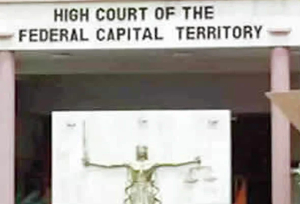Food Sovereignty Ghana, a civil society group, has asked the US Embassy in Accra to join its call for openness and transparency on the issue of genetically modified (GM) foods and crops in Ghana.
In a statement signed by the Chairperson of FSG, Ali-Masmadi Jehu-Appiah, the group said it was ready to "critically examine every single claim in favour of GM technology," but it wanted "this very important national conversation" to be public.
The statement indicated that the group was reacting to a letter from the US Embassy in Accra inviting the group to a closed-door "Roundtable Discussion and an Interdisciplinary Presentation on biotechnology at the US Embassy on July 10".
FSG had earlier called for a ban on the importation, cultivation, consumption, and sale of GM foods until the people of Ghana are satisfied that such an important and irrevocable decision is a sound and proper one to make.
"After a careful deliberation we have decided to turn down the invitation because it does nothing to advance our cause for a public debate on the issue," FSG said in the statement, adding: "We believe that it is of primary importance for the general public to know and evaluate the arguments for and against the introduction of GMOs into our food chain."
In the statement, FSG reiterated its call for a moratorium on GM crops in Ghana, saying that the call has even become more poignant as a result of comments coming from Members of Parliament indicating the level of ignorance of our parliamentarians who passed the Ghana Biosafety Act.
The statement alleged that "Mr Maxwell Kofi Jumah, Member of Parliament for Asokwa, categorically stated during the morning show on Adom FM, hosted by Adakabre Frimpong Manso, on Thursday, July 4, 2013 that "Members of Parliament had no knowledge of biosafety, so on what grounds did they pass the Biosafety Act? We need to listen to reliable experts on the subject."
The FSG stressed that since the first-ever International Assessment of Agricultural knowledge, Science and Technology for Development (IAASTD) and the UN Report in 2008, claims that GM technology could play any role in feeding the world or alleviating poverty have consistently failed to stand any independent scrutiny.
The FSG noted that for the avoidance of doubt, "we are not in opposition to science. We insist that Ghana needs to listen more to experts such as the 400 independent scientists assembled by the United Nations that recommended that there are indeed a number of very sensible, uses of biotechnology agriculture."
"These are cheaper, effective, and not subject to the monopoly of multinational corporations," the FSG statement said.
General News of Friday, 12 July 2013
Source: thefindernews












